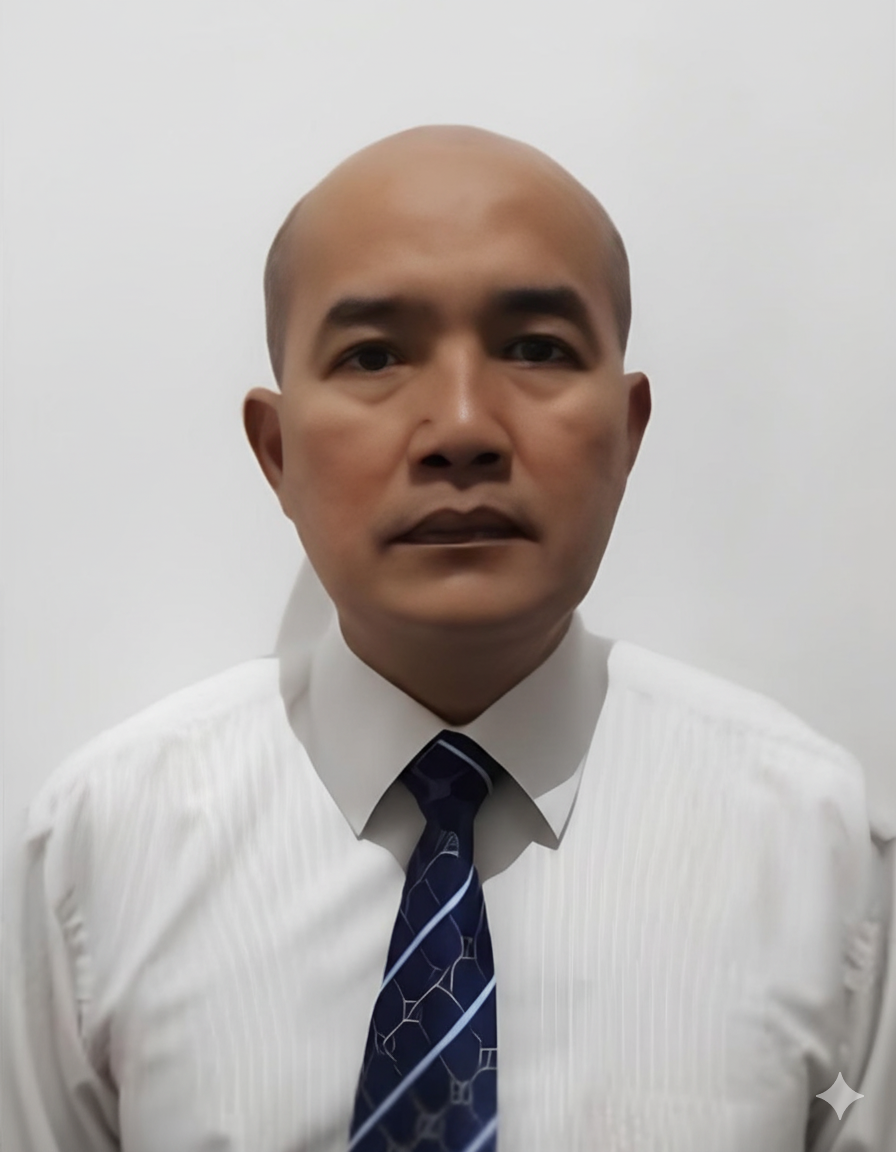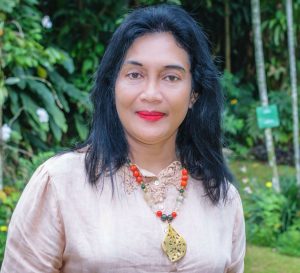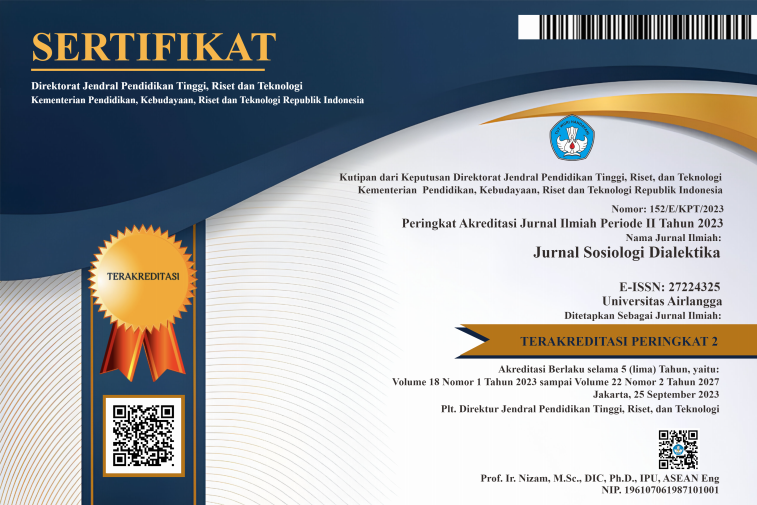The effect of social media usage on millennials’ political knowledge and political participation in the presidential election in Indonesia: A structural equation modelling analysis
Downloads
In democratic countries such as Indonesia, social media has gained importance as one of the tools to improve political literacy that leads to increase in political participation. This phenomenon has prompted many studies to explore the impact of technology-based communication tools on political knowledge and political participation. This article aims to determine the significance effect of social media usage on political knowledge and political participation in a structural model as well as to investigate whether social media usage effects political participation directly or through the mediating role of political knowledge. This study uses two theoretical frameworks, namely Uses and Gratification Theory and Cognitive-Affective-Conative Framework. The location of this research is in Surabaya, Indonesia with 400 respondents were taken by using multi-stage random sampling technique that represent the population of eligible voters in Surabaya. The research results show that the structural model built confirms the hypothesized theoretical model. The conclusion of this study shows that social media usage has directly and indirectly influences political participation in the presidential election in Indonesia.
Abdi AP (2018) Hasil survei LIPI: 40 persen suara di pemilu didominasi Milenial. Tirto.id, 11 December. [Accessed 25 January 2024]. https://tirto.id/hasil-survei-lipi-40-persen-suara-dipemilu-didominasi-milenial-dbGF.
Ali H & Purwandi L (2017) The urban middle-class Millenials Indonesia: Financial and online behavior. Research Results Report. Jakarta: Alvara Research Center. https://alvara-strategic.com/wp-content/uploads/whitepaper/The-Urban-Middle-Class-Millenials.pdf.
Binder A, Heiss R, Matthes J, & Sander D (2021) Dealigned but mobilized? Insights from a citizen science study on youth political engagement. Journal of Youth Studies 24 (2):232-249. https://doi.org/10.1080/13676261.2020.1714567.
Cacciatore MA, Yeo SK, Scheufele DA, Xenos MA, & Iyengar S (2018) Is Facebook making us dumber? Exploring social media use as a predictor of political knowledge. Journalism & Mass Communication Quarterly 95 (2):404-424. https://doi.org/10.1177/1077699018770447.
Damiarti AA, Damayanti TT, & Nugrahai AR (2019) Kampanye# Thinkbeforeyoushare oleh organisasi do something indonesia untuk mengubah perilaku generasi milenial. Metacommunication; Journal of Communication Studies 4 (1):65-94. https://dx.doi.org/10.20527/mc.v4i1.6355.
Delli Carpini MX (2017) Gen.com: Youth, civic engagement, and the new information environment. Political Communication 17 (4):341-349. https://doi.org/10.1080/10584600050178942.
Dimitrova DV & Matthes J (2018) Social media in political campaigning around the world: Theoretical and methodological challenges. Journalism & Mass Communication Quarterly 95 (2):333-342. https://doi.org/10.1177/1077699018770437.
Fishbein M & Ajzen I (1975) Belief, Attitude, Intention, and Behaviour: An Introduction to Theory and Research. Boston, MA: Addison-Welsey.
Gartner W (1993) Image formation process. In: Uysal M & Fesenmaier D (ed). Communication and Channel Systems in Tourism Marketing. New York: The Harworth Press. 191-215.
Gil de Zúñiga H, Copeland L, & Bimber B (2014) Political consumerism: Civic engagement and the social media connection. New Media & Society 16 (3):488-506. https://doi.org/10.1177/1461444813487960.
Gil de Zúñiga H, Diehl T, Huber B, & Liu J (2017) Personality traits and social media use in 20 countries: How personality relates to frequency of social media use, social media news use, and social media use for social interaction. Cyberpsychology, Behavior, and Social Networking 20 (9):540-552. https://doi.org/10.1089/cyber.2017.0295.
Halim H, Mohamad B, Dauda SA, Azizan FL, & Akanmu MD (2021) Association of online political participation with social media usage, perceived information quality, political interest and political knowledge among Malaysian youth: Structural equation model analysis. Cogent Social Sciences 7 (1):1964186. https://doi.org/10.1080/23311886.2021.1964186.
Hidayat AN (2018) Beda cara generasi milenial dalam politik. Kompas.com, 17 September. [Accessed 25 January 2024]. https://nasional.kompas.com/read/2018/09/17/19090001/beda-cara-generasi-milenial-dalam-politik.
Kahne J & Bowyer BT (2018) The political significance of social media activity and social networks. Political Communication 35 (3):470-493. https://doi.org/10.1080/10584609.2018.1426662.
Katz E, Blumler JG, & Gurevitch M (1973) Uses and gratifications research. The Public Opinion Quarterly 37: 509-523. https://doi.org/10.1086/268109.
Kemp S (2018) Digital in 2018: World’s internet users pass the 4 billion mark. We Are Social, 30 January. [Accessed 25 January 2024]. https://wearesocial.com/uk/blog/2018/01/global-digital-report-2018/.
Kim H, Kim Y, & Lee D (2020) Understanding the role of social media in political participation: Integrating political knowledge and bridging social capital from the social cognitive approach. International Journal of Communication 14 (22). https://ijoc.org/index.php/ijoc/article/view/12711.
Loader BD, Vromen A, & Xenos MA (2015) The networked young citizen: Social media, political participation and civic engagement. Information, Communication & Society 17 (2):143-150. https://doi.org/10.1080/1369118X.2013.871571.
Matthes J, Nanz A, Stubenvoll M, & Heiss R (2020) Processing news on social media. The political incidental news exposure model (PINE). Journalism 21 (8):1031-1048. https://doi.org/10.1177/1464884920915371.
McQuail D (1983) Mass Communication Theory. An Introduction. Beverly Hills: SAGE.
Moeller J, de Vreese C, Esser F, & Kunz R (2014) Pathway to political participation: The influence of online and offline news media on internal efficacy and turnout of first-time voters. American Behavioral Scientist 58 (5):689-700. https://doi.org/10.1177/0002764213515220.
Moon MA, Khalid MF, Awan HM, & Attiq S (2011) Consumer’s perceptions of website’s utilitarian and hedonic attributes and online purchase intentions: A cognitive–affective attitude approach. Spanish Journal of Marketing - ESIC 15 (2):73-88. https://doi.org/10.1016/j.sjme.2017.07.001.
Morissan (2019) Political and social participation of younger generation as social media users in Indonesia. The International Journal of Humanities & Social Studies 7 (2). https://doi.org/10.24940/theijhss/2019/v7/i2/HS1902-079.
Muhtar (2023) Ini 7 media sosial paling banyak digunakan di Indonesia. UICI, 4 April. [Accessed 25 January 2024]. https://uici.ac.id/ini-7-media-sosial-paling-banyak-digunakan-di-indonesia/.
Norris P (2003) Digital Divide: Civic Engagement, Information Poverty, and the Internet Worldwide. Cambridge, UK: Cambridge University Press.
Ohme J, De Vreese CH, & Albaek E (2020) The uncertain first-time voter: Effects of political media exposure on young citizens’ formation of vote choice in a digital media environment. New Media & Society 20 (9):3243-3265. https://doi.org/10.1177/1461444817745017.
Park CS (2017) Do social media facilitate political learning? Social media use for news, reasoning and political knowledge. The Journal of Social Media in Society 6 (2):206-238. https://thejsms.org/index.php/JSMS/article/view/292.
Perangin-angin L & Zainal M (2018) Partisipasi politik pemilih pemula dalam bingkai jejaring sosial di media sosial. Jurnal Aspikom 3 (4):737-754. http://dx.doi.org/10.24329/aspikom.v3i4.210.
Priyono AE (2014) Media Sosial Alat Gerakan Sipil [Social Media, Civil Movement’s Tool]. Jakarta: Public Virtue Institute.
Raenaldy A (2017) Hubungan antara media sosial terhadap peluang kemenangan pasangan calon Gubernur DKI Jakarta pada Pilkada 2017 (Studi Wilayah Jakarta Utara). Dissertation, Udayana University, Jimbaran-Bali.
Richey S (2008) The autoregressive influence of social network political knowledge on voting behaviour. British Journal of Political Science 38: 527-542. https://doi.org/10.1017/S0007123408000264.
Saud M, Ida R, & Mashud MI (2020) Persistence of social media on political activism and engagement among Indonesian and Pakistani youths. International Journal of Web Based Communities 16 (4):378-395. https://doi.org/10.1504/IJWBC.2020.111361.
Schäfer S (2020) Illusion of knowledge through Facebook news? Effects of snack news in a news feed on perceived knowledge, attitude strength, and willingness for discussions. Computers in Human Behavior 103: 1-12. https://doi.org/10.1016/j.chb.2019.08.031.
Theocharis Y, Boulianne S, Koc-Michalska K, & Bimber B (2023) Platform affordances and political participation: How social media reshape political engagement. Current Opinion in Psychology 51: 101643. https://doi.org/10.1080/01402382.2022.2087410.
Vaccari C & Valeriani A (2021) Outside the Bubble: Social Media and Political Participation in Western Democracies. New York: Oxford University Press.
Vromen A, Xenos MA, & Loader BD (2015) Young people, social media and connective action: From organizational maintenance to everyday political talk. Journal of Youth Studies 18 (1):80-100. https://doi.org/10.1080/13676261.2014.933198.
Wahyutama (2019) Social media and youth political participation at the time of political polarization: A study on University Students in Indonesia during the 2017 Jakarta Gubernatorial Election. Dissertation, Victoria University of Wellington, Wellington.

This work is licensed under a Creative Commons Attribution-NonCommercial-ShareAlike 4.0 International License.
1. Copyright of this journal is possession of Editorial Board and Journal Manager, by the knowledge of author, whilst the moral right of the publication belongs to the author.
2. Legal formal aspect of journal publication accessibility refers to Creative Commons Attribution-NonCommercial-ShareAlike (CC BY-NC-SA), implies that publication can be used for non-commercial purposes in its original form (cannot be modified).
3. Every publications (printed/electronic) are open access for educational purposes, research, and library. Other that the aims mentioned above, editorial board is not responsible for copyright violation.















